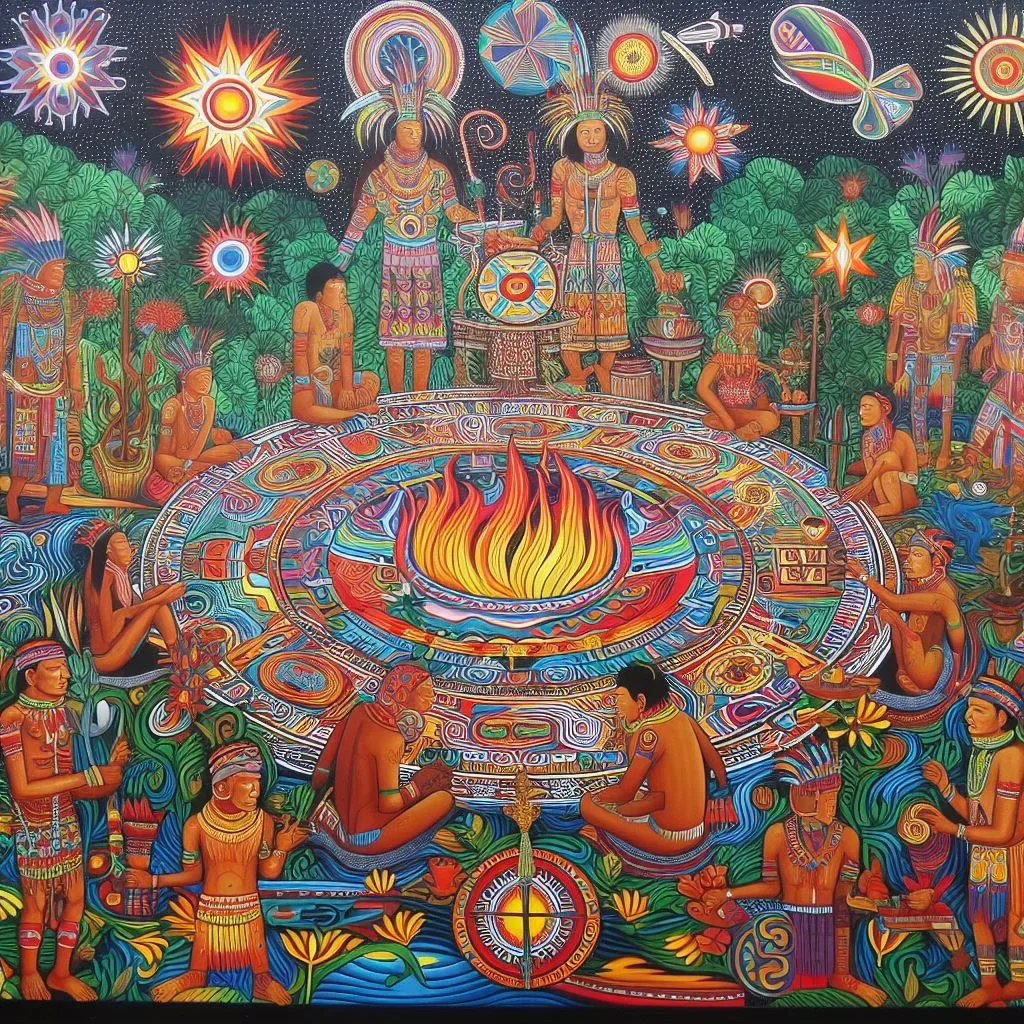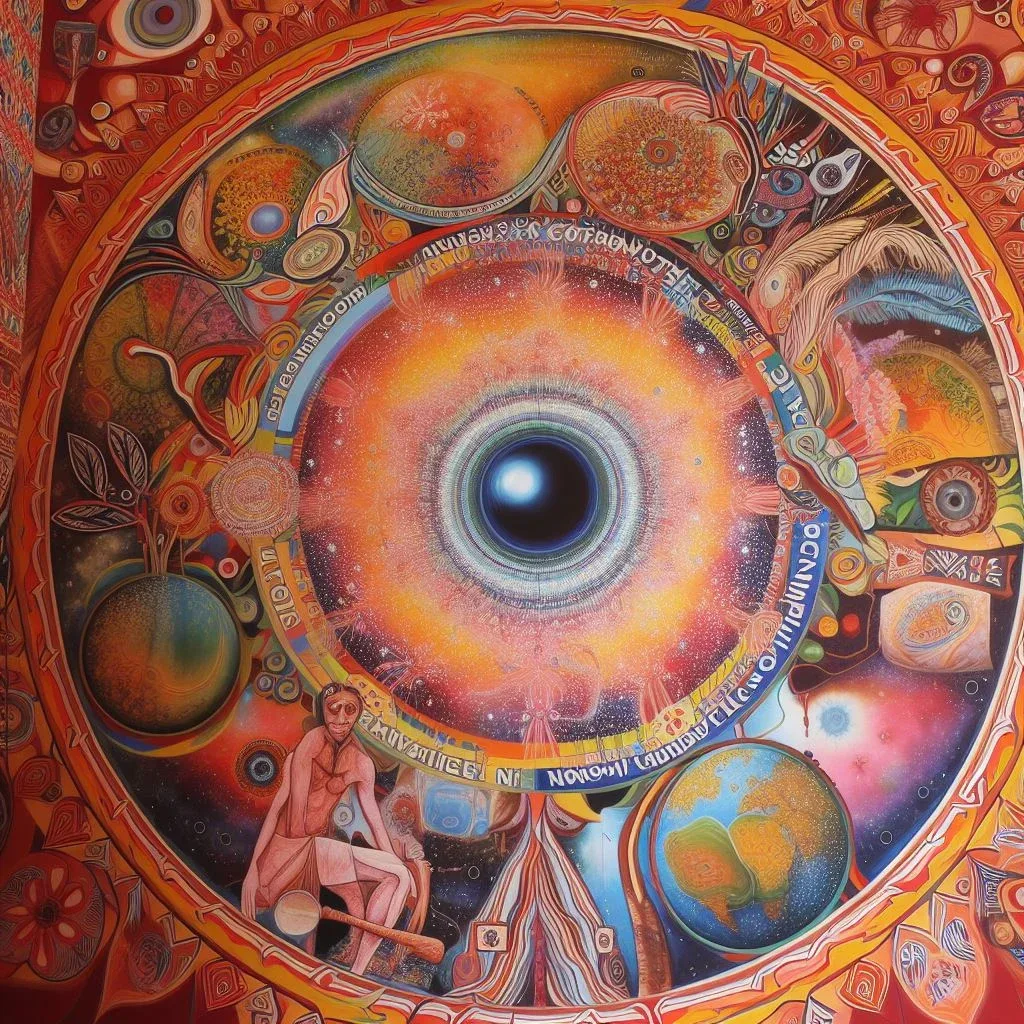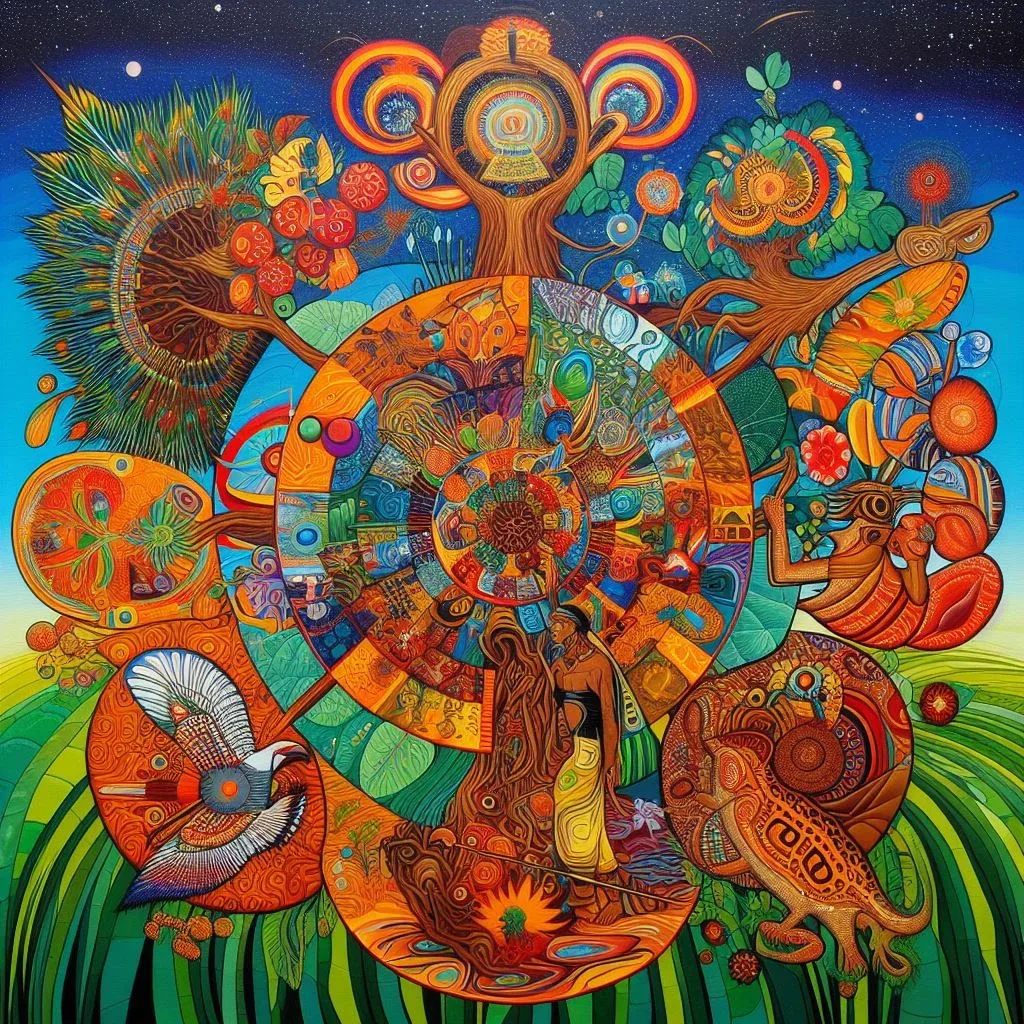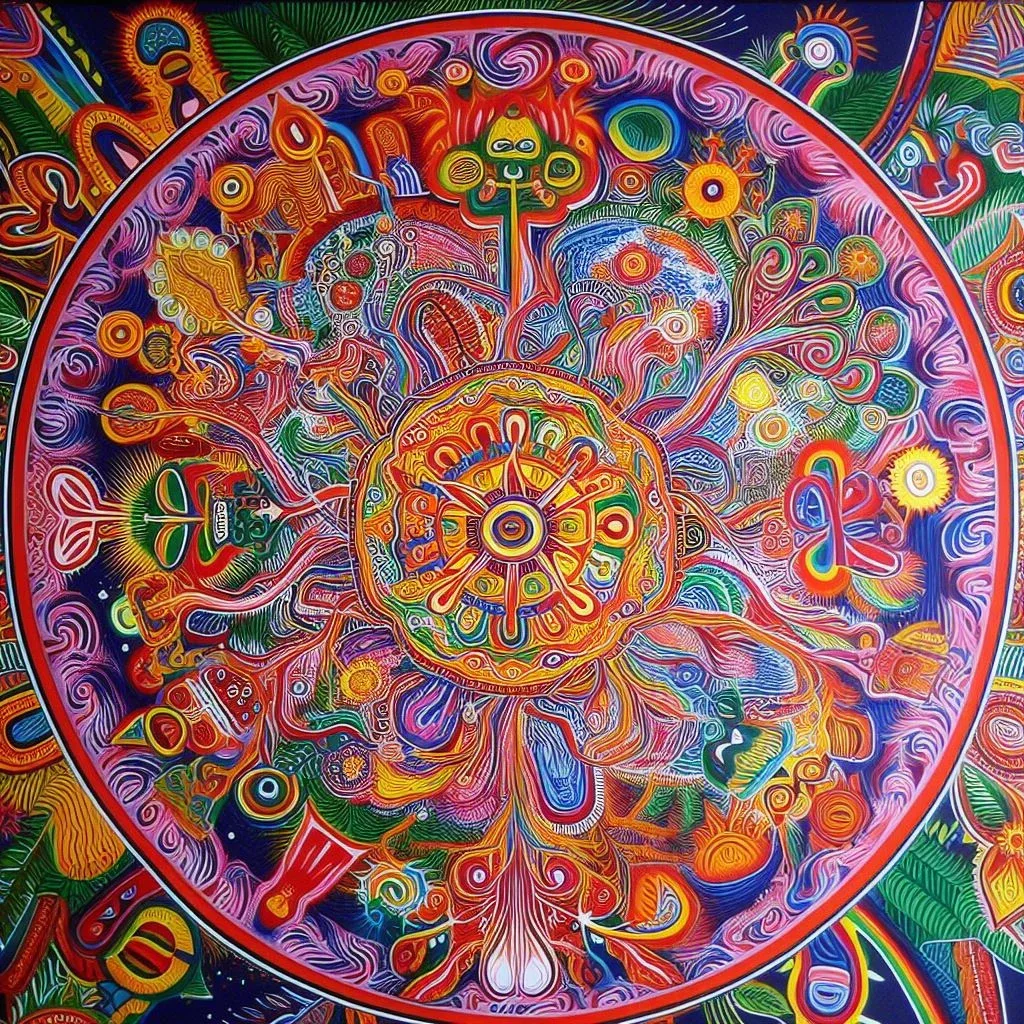Philosophy is an area that encompasses a wide range of traditions and thoughts, many of which are little known to the general public. A notable example is the Yanomami philosophy, an indigenous culture that inhabits the Amazon region of Brazil and Venezuela. In this article, we will explore Yanomami philosophy, their worldview, their cosmovision and how this unique culture understands the universe that surrounds it.

Introduction to Yanomami Culture
The Yanomami are an indigenous population who live on the border between Brazil and Venezuela, in one of the most remote areas of the Amazon. With a rich history and a culture deeply rooted in the region, the Yanomami have a philosophy that differs significantly from the traditional Western philosophical approach.

Yanomami Worldview: A Deep Integration with Nature
The Yanomami worldview is centered on deep integration with nature. They believe that all living beings and elements of nature are interconnected. This includes humans, animals, plants and spirits. They see the world as a whole, where each element plays a vital role in the balance of the universe.

The Yanomami have a deep respect for the land and believe it is a source of life. They see trees, rivers and animals as living beings with which they share a spiritual connection. The protection and preservation of nature are fundamental principles in their philosophy, as they believe that harming nature would result in imbalance and disaster.
Xapiri: The Spirits of the Forest
The Yanomami believe in the existence of xapiri, the spirits of the forest. They believe that these spirits can influence the health, well-being and balance of the community. The xapiri are seen as benevolent beings who can protect the Yanomami, but also as entities that need to be respected.

The xapiri are invoked in shamanic rituals and ceremonies, where spiritual leaders communicate with these spirits to seek guidance and balance. Yanomami philosophy values harmonious interaction with the spiritual world, believing that this is essential for the physical and spiritual health of their people.
Sharing Knowledge: Yanomami Orality
The transmission of knowledge in Yanomami culture is mainly oral. Stories, legends and teachings are passed from generation to generation through oral narrative. This challenges the Western approach of documenting knowledge in writing.

Yanomami philosophy values oral tradition, believing that this way of sharing knowledge maintains the essence and authenticity of stories and teachings. Orality is a way of keeping the rich cultural and philosophical heritage of the Yanomami community alive.
Balance and Conflict: the Philosophy of Conflict Resolution
The Yanomami believe that balance is fundamental to the harmony of life. This extends to conflict resolution. When disputes or conflicts arise within the community, they have a traditional system of resolution based on balance.

The goal is not to punish, but to restore balance and harmony. The parties involved seek a solution that will bring peace and order back to the community. This reflects the Yanomami view that conflict is a disruption of balance and that restoring that balance is the key to harmony and well-being.
Conclusion: Yanomami Philosophy as a Lesson for the World
Yanomami philosophy offers a unique perspective on the world and life. His deep integration with nature, belief in forest spirits, respect for oral tradition and balance-based approach to conflict resolution are valuable lessons for the modern world.
As we face environmental and social challenges, Yanomami philosophy reminds us of the importance of respecting and protecting nature, value our cultural traditions and seek solutions that restore balance and harmony. By learning from cultures like the Yanomami, we can enrich our understanding of the world and philosophy as a whole.
Frequently Asked Questions about Yanomami Philosophy

In this FAQ, we will explore common questions related to Yanomami philosophy, offering insights into their worldview, cultural values, and unique contributions to philosophical thought.
1. What is Yanomami Philosophy?
Yanomami philosophy is the system of beliefs, values and principles that guide the life and worldview of these indigenous people who inhabit the Amazon region. It focuses on deep integration with nature, belief in forest spirits and values of balance and harmony.
2. What is the Yanomami Worldview?
The Yanomami worldview is an understanding of the world as an interconnected whole. They see nature as an integral part of their existence and believe that all living beings and natural elements are interconnected.
3. What are the Xapiri in Yanomami Philosophy?
The xapiri are the spirits of the forest in the Yanomami worldview. They are seen as benevolent entities that influence the health and balance of the community. The xapiri are invoked in shamanic rituals and ceremonies to seek guidance and harmony.
4. How is Yanomami Philosophy Transmitted?
Yanomami philosophy is transmitted mainly orally. Knowledge, stories and teachings are passed from generation to generation through oral narrative. This keeps the community's cultural heritage alive.
5. How are Conflicts Resolved in Yanomami Philosophy?
In Yanomami philosophy, conflicts are resolved by seeking balance and harmony. The goal is not to punish, but to restore peace. The parties involved seek solutions that restore balance in the community, reflecting the Yanomami view that conflict is a disruption of balance.
6. What is the Importance of Yanomami Philosophy in the Global Context?
Yanomami philosophy offers valuable lessons for the modern world, especially regarding the importance of protecting nature, respect for cultural traditions, and conflict resolution based on balance. The Yanomami worldview can enrich our global understanding and promote more sustainable and harmonious practices.
We hope these answers have clarified your doubts about philosophy Yanomami, their worldview and unique contributions to philosophical thought.






